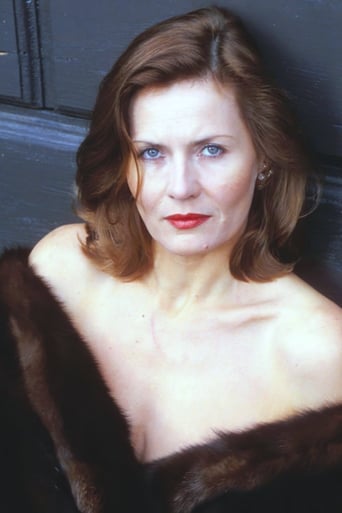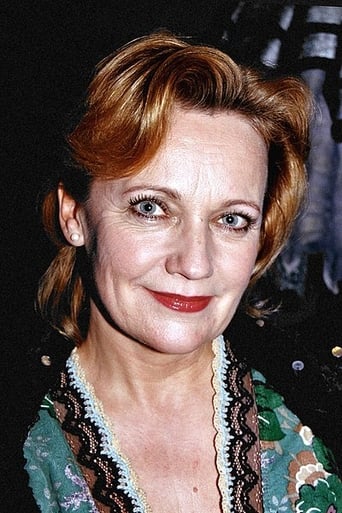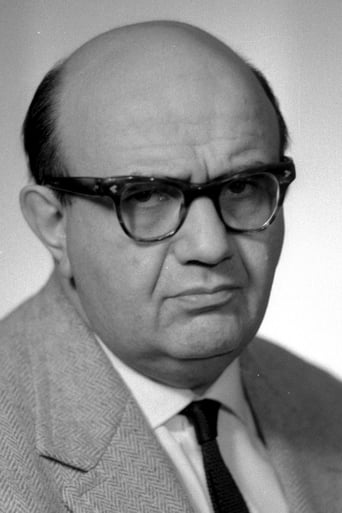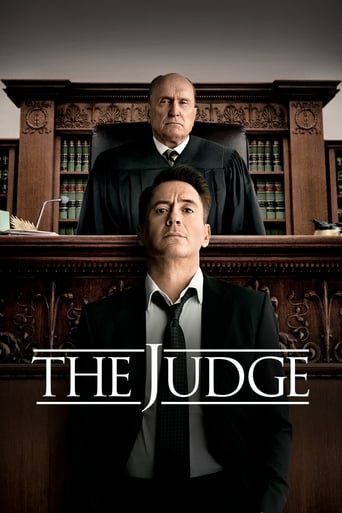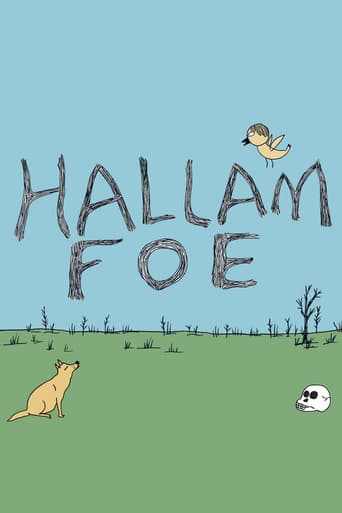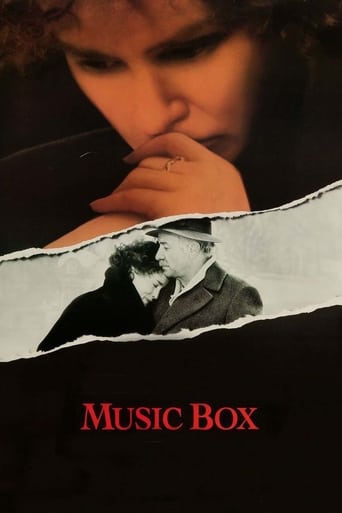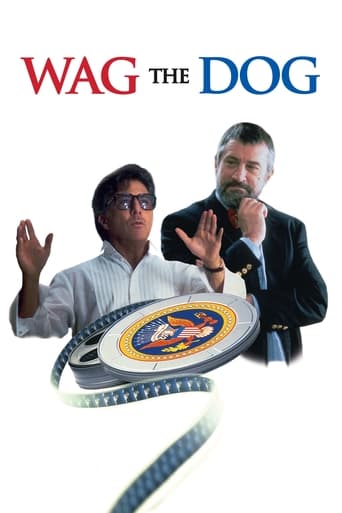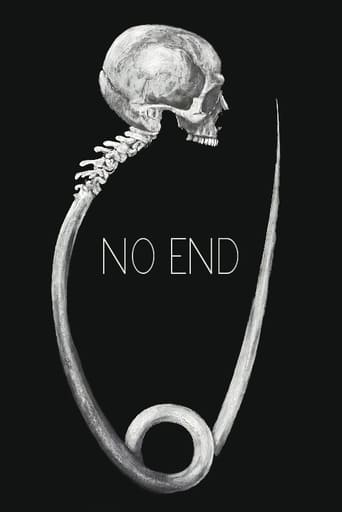
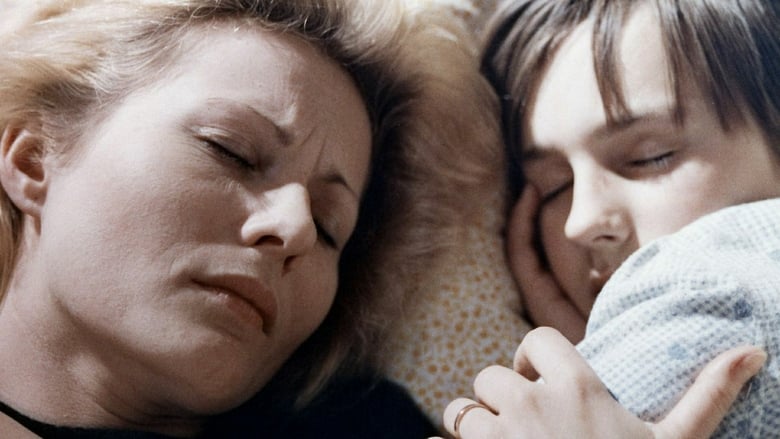
No End (1987)
1982, Poland. A translator loses her husband and becomes a victim of her own sorrow. She looks to sex, to her son, to law, and to hypnotism when she has nothing else in this time of martial law when Solidarity was banned.
Watch Trailer
Cast
Similar titles
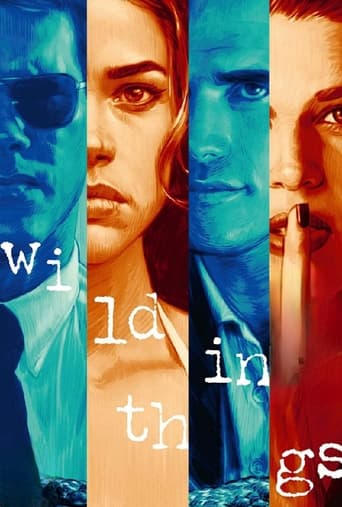


Reviews
Memorable, crazy movie
Although it has its amusing moments, in eneral the plot does not convince.
There is, somehow, an interesting story here, as well as some good acting. There are also some good scenes
Like the great film, it's made with a great deal of visible affection both in front of and behind the camera.
What has been seen of Krzysztof Kieslowski (almost all his films and 'Dekalog' in its entirety) all ranges between very good (the 8th episode of 'Dekalog') to masterpiece ('Three Colors: Red' and 'Blue' and the whole 'Dekalog' series). To me, he was an immensely gifted director, who died far too early.'No End' is not one of Kieslowski's best, but like 'Camera Buff' it is another early film of his that deserves more love and attention. It may be alienating and strange to some viewers (its, as reasoned, pro-solidarity sentiments must have been reason enough for it to not be released internationally for over a year) and his more international work is somewhat more accessible. However, while some of the political story could have had more clarity in places, 'No End' is great in many ways with all the typical Kieslowski strengths that make his films so good.As was always the case in Kieslowski's work, 'No End' is made exceptionally. As well as being beautifully shot with atmospheric use of colour to match the mood, it is gritty yet beautiful with many thoughtful and emotionally powerful images and little things lingering long into the memory. Kieslowski's direction is quietly unobtrusive, intelligently paced and never too heavy. The music is suitably intricate.It's a thought-provoking film in writing, as ever thematically rich and with complex characters, and resists the trap of rambling. The 3-part story is intriguingly told, and while the political story could have done with more clarity the emotional story is harrowing and affecting and the metaphysical story fascinating. 'No End' is always engaging and suitably challenging. The acting is as always from Kieslowski marvellously nuanced and natural, especially from heart-wrenching Grazyna Szapolowska.Summing up, not among the best work of Kieslowski but deserves more love as a result of being overshadowed by his later stuff from 'Dekalog' onward. 9/10 Bethany Cox
Polish screenwriter and director Krzysztof Kieslowski's fifth feature film which he co-wrote with his long-time collaborator Krzysztof Piesiewicz, their first collaboration, is a Polish production which was produced by Ryszard Chutkowski who worked as a producer on several of Krzysztof Kieslowski's films. It tells the story about Urszula, a Polish translator who lives with her son in Poland during the early 1980s when the regime had declared martial law and did everything in their power to repress and destroy the first non-communist party "Solidarity". Urszula has recently lost her husband Antek who was a lawyer and is struggling to work out her grief while trying to raise and take care of her young son by herself. When contacted by her late husband's former client Darek Stach who is still concerned about his case, she tries her best to help him, but Urszula still longs for her deceased husband and no matter what she does he is constantly on her mind.Krzysztof Kieslowski's last politically prominent film from 1985 where he began to move his focus away from the political war that had marked his native country for the last two years, merges social realism with spirituality and draws a finely tuned portrayal of a grief-stricken woman possessed by her departed husband's spirit. This subtly paced and character-driven fictional tale which examines themes such as loss, grief, interpersonal relations, family relations and love, is as much of a heartbreakingly romantic and affectingly atmospheric love-story as a political and ethical drama.Acutely and precisely directed, this visually remarkable film is notable for it's naturalistic milieu depictions, the stellar cinematography by Polish cinematographer Jacek Petrycki, the ardent production design by Alan Starski and the poignant score by one of Krzysztof Kieslowski's most regular collaborators Zbigniew Preisner, who he worked with for the first time on this film. A profoundly well-written, intimate and internal mystery with a moving and understated acting performance by Polish actress Grazyna Szapolowska in an emotionally complicated role.
I state for the record that I did not understand this film fully. The second plot with Solidarnost protester imprisoned and released by the court is not completely clear to me. Yet it has little to do with politics and more with human condition (ideals, expectation, compromise). Prisoner's family doesn't react happily upon his immediate release in a court room. There is awkwardness and embarrassment in that scene, as if some unforgivable compromise has been made and it tainted all of their relationship. Accident scene with a death of motorist seems random but reoccurring theme in Kieslowskij movies. Randomness of death, randomness of existence. Movie is wonderfully shot , music (as always) is haunting. I just cannot put it all together in my mind like I could with Veronique.
This is a real pleasure to both eye and mind. The untimely demised Mr. Kislowski was a true genius of Polish cinema and with this excellent film he again proves it. The film is divided into two genres, if it may be said so - one is a mystic one, where we see the ghost of a dead Warsawa lawyer, Antek, when he watches his widow and his little son and their life from the ether and the only creature that sees him is a big black dog. The other plot is a deeply tragic and serious story about 1982's Poland, when the anti-Communist political movement called Solidarnosc (the Solidarity) was banned, the country suffered curfews, arrests and political trials.The widow of Antek, Ulla, is a famous translator, and she is devastated with her husband's death. She starts to help the wife of a man who is in prison, who was in Solidarnosc's actions and who was Antek's client. So, now that Antek is dead, another lawyer, his teacher, an elderly man takes the case, and his young assistant also helps him. The story tells us about the small and still tragic events of their lives. We see the unbent Solidarnosc activists, who meet secretly in their shabby apartments. We see Ulla's soul struggle when she is rushing from one extreme to another, having a quick date with an American, having help from the Solidarity people, having troubled relations with Antek's friend. We see and feel her pain, her mute suffering and her constant plea for her late husband. Finally, when the case is won, and that young man is released right during the trial, Ulla decides to take her life and finally join Antek. The cast is superb, we see young Marek Kondrat among others, we see other great actors and we feel the same pain they all suffer in those bleak, cold, merciless days of repressions and purges. A serious, earnest film for all who think.
